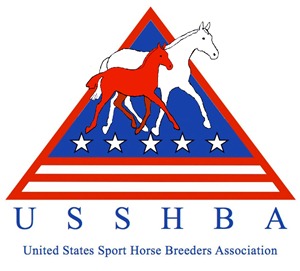|
Natalie DiBerardinis
Managing Director, Hilltop Farm The big topic of discussion this spring and summer for many sport horse breeders in both North America and Europe has been Warmblood Fragile Foal Syndrome (WFFS). The news first broke in March when we released the carrier status of one of the Hilltop Farm stallions. For a syndrome with a very low occurance rate, has the response been overblown or are we not doing enough? In the four months that have passed, there have been many developments that I feel are important for breeders to know and understand. It is the voices of breeders that will direct how this and future genetic testing is or is not utilized within sport horse breeding. The initial responses from the North American sport horse registries was quite positive. They acknowledged member concerns and encouraged mare owners to test. An especially significant development out of this support from the registries was that UC Davis started offering the WFFS test as well. As you probably are aware, UC Davis handles the DNA parentage verification for almost all the registries in North America. The ability to cross-check on identity verification, the opportunity for a large-scale population study to better evaluate the carrier rate, and UC Davis's excellent reputation all are important components in the significance of this development. Many of the breed registries have negotiated discounted rates on testing and you can often use DNA that is already on-file at UC Davis if your registry requires hair samples for proof of parentage at time of registration. The Dutch (effectively immediately) and Swedish Warmblood (have begun testing but not mandatory until 2019) registries in both Europe and North America are going to require testing of all approved stallions and are openly publishing testing results. The American Hanoverian Society (although notably not the Hanoverian Verband) are encouraging stallion owners to test and will include testing status in their yearly directory. ISR/OldenburgNA has requested stallions to be tested, but hasn't yet announced if/how those results will be published. Other registries are taking a more cautious approach, recommending testing but not going so far as to require it and a few registries are completely silent on the WFFS question. WFFS and genetic health in general will be a major topic of the World Breeding Federation for Sport Horses annual meeting this year and it's likely we'll see some registries waiting to make an official decision until after that meeting. Notice none of the registries are requiring testing for mares at this time, although those that have made statements have encouraged mare owners to test. I feel this has been an underemphasized step to-date. WFFS is an autosomal recessive trait, meaning a foal can only be affected if the foal inherits the disease from both parents. When the Friesian breeders were facing similiar sorts of recessive traits they have taken the approach of testing the mares as the top priority. That way a breeder was guaranteed knowledge for at least one side of the breeding equation. While a stallion is likely to have a much larger impact on the population as a whole, it is our mares that have the largest impact within our own breeding results and as such we need to know everything we can about them. A breeder that tests their own mares will know either that their mare is clear of the mutation and regardless of the stallion’s status a foal would not inherit the actual expression of the disease OR that the mare is a carrier and while she herself won’t have any health risks, it will be important to know the status of potential stallion combinations for her and choose only to breed to a stallion who is himself clear of the recessive allele. I can understand the breeders taking the position of not wanting to test, but I do not agree with them. Yes, there are many far larger issues confronting breeders that we need to be concerned with in our breeding choices and yes, the incidence rate of affected foals is very low. But with all we spend on our horses, why would we not reduce the risks of something going wrong when we can? This test is easy and inexpensive. If we test breeding stock in this generation, we'll have a lot of offspring for subsequent generations that won't need tested as it automatically applies that if both parents are free of the gene mutation than the offspring are as well. For those of us with carrier horses, we now have important information we didn't have a few months ago. While there is a 50% chance a carrier horse will pass along carrier status to their offspring, as long as we avoid carrier-to-carrier breedings we can prevent any potential foal losses due to WFFS. There are strong opinions on both sides for allowing or not allowing carrier stock to be bred but the cautious, longview approach that has been adopted by all other registries in dealing with similiar situations has been to require testing, avoid potentially risking combinations, and focus on education of breeders and the general riding public. For those of you who have tested, been active in the online discussions, or contacted your registry with your thoughts - thank you! Please continue to do so as we are a long ways from all the registries having full plans in place for handling the question of WFFS testing. I fully expect we'll be having similiar discussions in coming years regarding other genetic traits as testing becomes more available and how we respond to WFFS will shape how future tests are integrated as well.
6 Comments
|
Details
AuthorsA collaborative effort produced by the USSHBA Education Committee, USSHBA members, and our partners. Archives
January 2021
|
